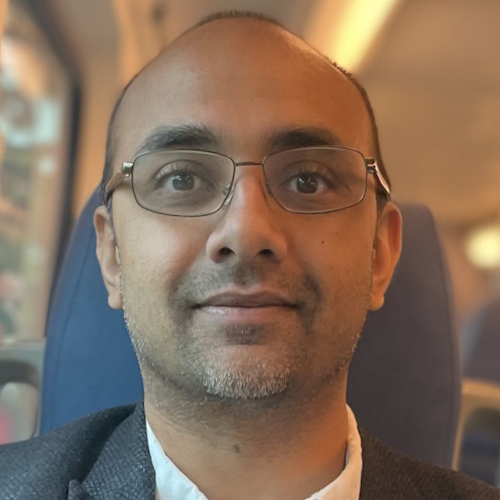Scott’s Stage 3 Rectal Cancer Story
Scott’s stage 3 rectal cancer diagnosis stemmed from an annual physical where his doctor discovered blood in his stool. A follow-up colonoscopy revealed a tumor, even though he showed no other symptoms. This marked his second battle with cancer, having previously overcome testicular cancer in 1988 through surgery and radiation.
Interviewed by: Taylor Scheib
Edited by: Chris Sanchez
Scott emphasizes the importance of trusting his medical team and their treatment strategies. During his second cancer journey, the COVID-19 pandemic added complications. Despite initial fears about visiting healthcare facilities, he felt safer at his treatment center, the White Plains Cancer Center, due to the strict precautions in place due to the pandemic. His treatment began with chemotherapy, which eliminated the tumor before surgery became necessary. Though he managed chemotherapy with minimal side effects, radiation in 2021 proved more challenging, causing significant weight loss.

Scott emphasizes the importance of trusting his medical team and their treatment strategies. During his second cancer journey, the COVID-19 pandemic added complications. Despite initial fears about visiting healthcare facilities, he felt safer at his treatment center, the White Plains Cancer Center, due to the strict precautions in place due to the pandemic. His treatment began with chemotherapy, which eliminated the tumor before surgery became necessary. Though he managed chemotherapy with minimal side effects, radiation in 2021 proved more challenging, causing significant weight loss.
In April 2023, scans revealed lingering rectal cancer cells, requiring surgery. Scott underwent ileostomy surgery, lived with an ostomy bag for three months, and later had a reversal. Despite these challenges, he maintained an active social life, attending live music events even with the ostomy bag. He shares practical advice about handling the bag, emphasizing the importance of not letting it restrict one’s life.
Scott credits his positive mindset as being crucial to his resilience. He utilized visiting nurse services early in his recovery to gain confidence in managing his care independently. By staying focused on treatments and continuing activities he loves, he manages to find joy amidst adversity. His healthcare team, friends, and love for live music have been vital in keeping him motivated.
As a proud 2-time cancer survivor, Scott openly shares his experiences to inspire others. His closing message underscores the mantra that has guided him through both cancer battles: “Trust your team and trust the treatment.”
- Name:
- Scott M.
- Diagnosis:
- Rectal cancer
- Staging:
- Stage 3
- Age at Diagnosis:
- 63
- Initial Symptoms:
- Blood in stool
- Treatment:
- Chemotherapy
- Surgery (ileostomy)
- Radiation

This interview has been edited for clarity and length. This is not medical advice. Please consult with your healthcare provider to make informed treatment decisions.
The views and opinions expressed in this interview do not necessarily reflect those of The Patient Story.

Inspired by Scott's story?
Share your story, too!
Related Cancer Stories
More Rectal Cancer Stories
Sarah G., Rectal Cancer, Stage 2A
Symptom: Minor and inconsistent rectal bleeding
Treatments: Surgery (low anterior resection or LAR), chemotherapy (FOLFOX)
Kalei M., Rectal Cancer, Stage 4 (Metastatic)
Symptoms: Presence of mucus and tissue-like substance and blood in stool, stomach cramping
Treatment: Radiation therapy, chemotherapy, surgeries (two lung resections)
Jessica A., Rectal Cancer, Stage 4 (Metastatic)
Symptoms: Changes in bowel movements, blood in stool, abdominal pain, back pain, difficulty sitting comfortably, constipation, feeling of incomplete evacuation (as if some stool remained after bowel movements), mucus-like stool consistency, bloating
Treatment: Immunotherapy under a clinical trial
Shiva S., Rectal Cancer, T2, and Renal Cancer, T3
Symptoms: Pressure and urgency of bowels, back pain
Treatments: Chemoradiation (for rectal cancer), surgery (ileostomy, combined bowel and kidney surgery), immunotherapy (for kidney cancer)
Jeanine B., Rectal Cancer, Stage 3 (T3bN0M0)
Symptoms: Long history of bleeding that was blamed on hemorrhoids, pain in the tailbone, urgent need to use the restroom, unusually narrow stools, presence of mucus in stools, fatigue
Treatments: Chemotherapy, radiation therapy
Devon B., Rectal Cancer, Stage 4
Symptoms: Pain when trying to move bowels, increased frequency of bowel movements alternating with periods of constipation, passing mucus instead of feces, narrow stools
Treatments: Surgery (ostomy surgery), radiation therapy, chemotherapy





